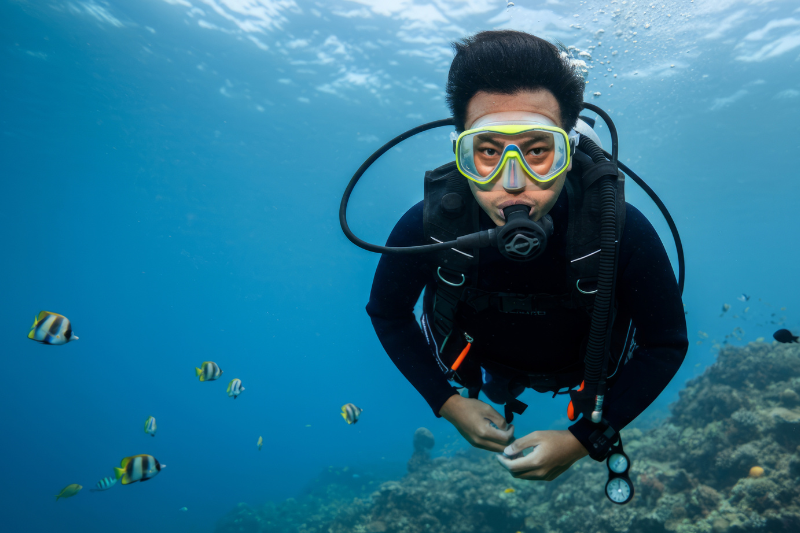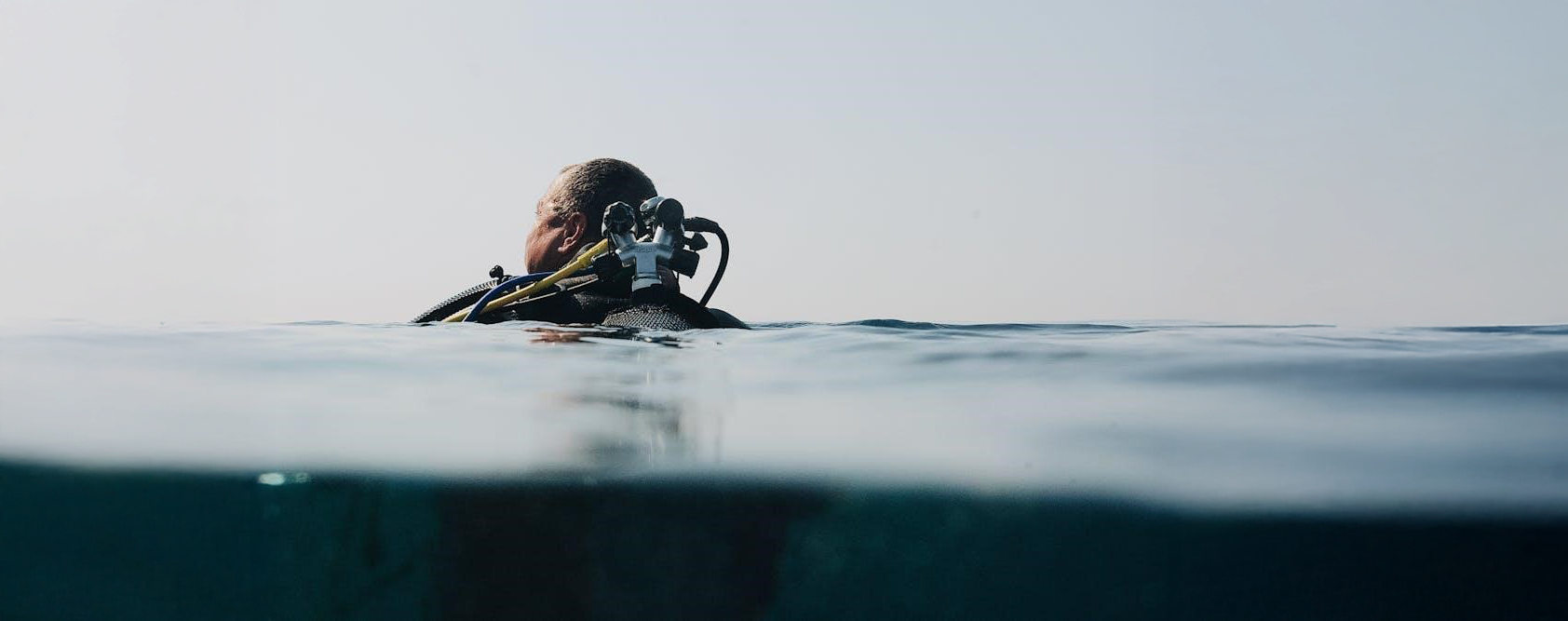Underwater Safety: A Scuba Diver’s Pre-Trip Checklist
The allure of the deep blue beckons, promising encounters with vibrant marine life. Yet, beneath the surface lies a world where careful preparation is key.
Before you plunge into the ocean’s depths, a thorough pre-trip safety checklist is essential. Let’s go through scuba diving safety and precautions so that your thrill of exploration is matched by the security of sound preparation.
Essential Pre-Dive Preparations
Understanding Scuba Diving Safety
To truly appreciate the underwater realm, one must first grasp the significance of scuba diving safety. Core principles guide every dive, ensuring both personal well-being and the preservation of the delicate marine environment.
- Buddy System: Never dive alone. A buddy provides assistance, checks equipment, and offers support in case of emergencies.
- Controlled Breathing: Maintain steady, shallow breaths to conserve air and avoid lung overexpansion.
- Equalisation: Regularly equalise ear pressure to prevent discomfort or injury during descent.
- Proper Ascent: Ascend slowly and perform safety stops to avoid decompression sickness.
- Awareness: Stay aware of your surroundings, depth, air supply, and buddy’s location.
- Respect Marine Life: Observe marine creatures from a distance and avoid touching or disturbing them.
Equipment Checks and Maintenance
Your scuba diving gear is your lifeline underwater. A meticulous inspection and maintenance routine is non-negotiable. Proper gear fitting is the start of a safe and enjoyable dive.
- Inspect the regulator for leaks and proper function.
- Verify the buoyancy compensator (BCD) inflates and deflates correctly.
- Ensure the dive computer is functioning and set to the correct mode.
- Check the tank for sufficient air and proper valve operation.
- Examine the mask, snorkel, and fins for damage.
- Ensure all straps and buckles are secure.
Can A Non-Swimmer Do Scuba Diving?
If you are unsure about your swimming abilities, then whether you can do scuba diving will depend on a few things.
Scuba diving demands a level of physical fitness and comfort in water. You must be able to maintain buoyancy, swim short distances, and tread water. Health considerations, such as respiratory or cardiovascular issues, should be discussed with a medical professional before diving.
Diving Hazards and Prevention
Decompression Sickness (DCS)
Ever heard of “the bends?” That’s decompression sickness (DCS), and it’s something every diver needs to understand. It happens when nitrogen bubbles form in your body from a too-quick trip to the surface. Not fun and potentially serious.
So, how do we avoid it? Follow these rules:
- Take your time. Ascend at typically around 18 metres per minute for safety.
- Perform safety stops at designated depths
- Follow your dive computer’s recommendations for no-decompression limits.
- Avoid strenuous activity immediately after a dive.
Marine Life Hazards
The underwater world is home to diverse and sometimes dangerous creatures. However, not all marine life is friendly. Watch out for:
- Stinging Organisms (e.g., jellyfish, corals)
- Venomous Fish (e.g., stonefish, scorpionfish)
- Sharks and Barracuda
- Strong Currents
Emergency Procedures
Scuba diving, like any adventure activity, carries inherent risks. Equipment failure or lost divers are just two examples of potential emergencies.
Emergency procedures for various scenarios:
- Equipment Failure: Signal to your buddy, attempt to use backup equipment, and make a controlled ascent.
- Lost Diver: Follow pre-agreed search patterns, use audible signals, and ascend if necessary.
- Out of Air: Signal to your buddy and use their alternate air source.
- Entanglement: Remain calm, signal to your buddy, and carefully attempt to free yourself.
A fundamental rule of scuba diving is to never hold your breath. Doing so can cause lung overexpansion injuries. As you ascend, the air in your lungs expands. Maintaining a steady, relaxed breathing pattern allows this expansion to occur safely.
If you feel any pain or discomfort during a dive, immediately signal to your buddy and ascend slowly.
Travel Insurance for Scuba Divers
All this talk about diving safety brings up an important point: even with the best preparation, accidents can still happen. That’s where HL Assurance’s Travel Protect360 travel insurance comes in, providing essential coverage for diving incidents.
With Travel Protect360, you’re covered for medical emergencies, including those specific to diving, like decompression sickness and emergency evacuation coverage. We also offer coverage for emergency evacuations and lost or damaged scuba diving equipment. It’s peace of mind, so you can focus on the dive.
Secure Your Underwater Adventures

By following key safety protocols and understanding potential hazards, you can minimise risks and maximise your underwater experience. And, for that extra layer of protection, scuba diving insurance is essential.
Ready to dive with confidence? Explore HL Assurance’s Travel Protect360 for your next scuba diving trip.







